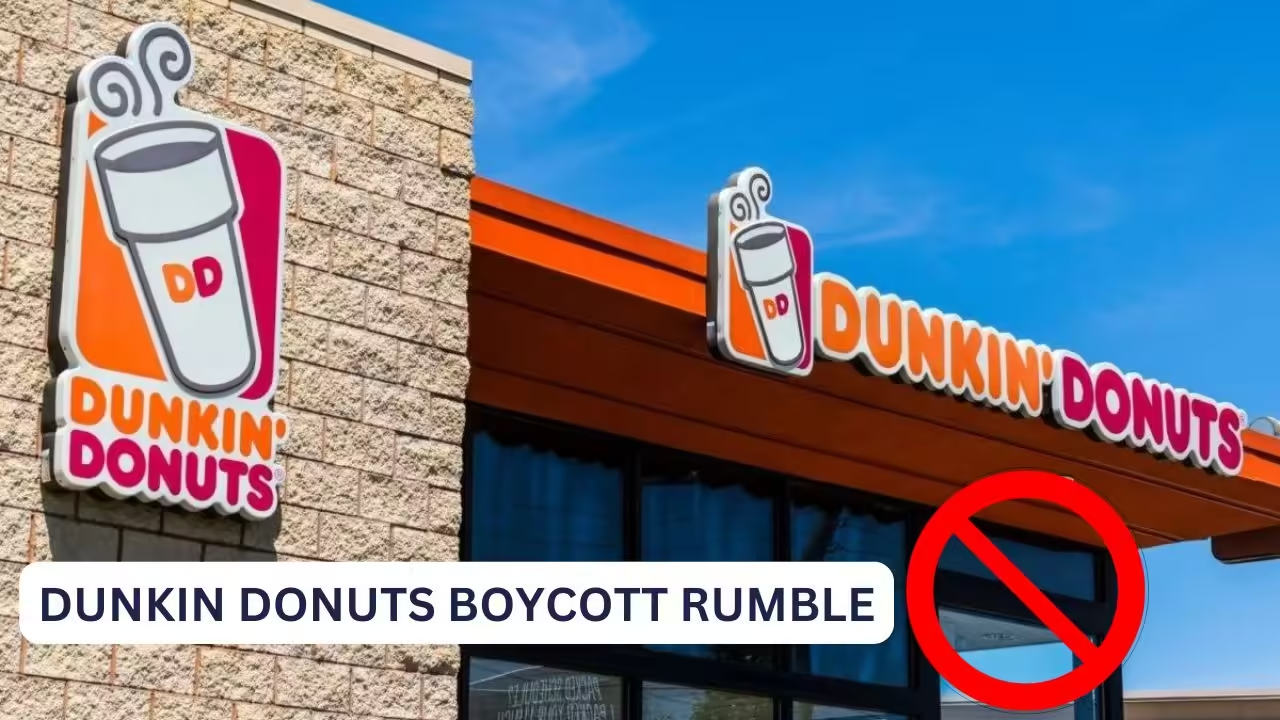Dunkin Donuts found itself at the center of a heated controversy, leading to a widespread call for a boycott against the popular coffee and donut chain. The catalyst for this movement was Dunkin’s decision not to advertise on Rumble, a video-sharing platform that has gained popularity among conservative voices. The ensuing backlash highlights the growing polarization in the media and advertising industries, where companies are increasingly being scrutinized for their political affiliations and advertising choices.
Background: Rumble and Its Controversial Content
Rumble, founded in 2013, is a video-sharing platform that has positioned itself as a free speech alternative to YouTube. It gained prominence by hosting content from conservative creators who felt censored on mainstream platforms. Among its most high-profile personalities is Steven Crowder, a conservative commentator known for his provocative views. Crowder’s channel was demonetized and suspended multiple times by YouTube, prompting him to move his content to Rumble. Despite Rumble’s smaller audience compared to YouTube, Crowder continues to attract hundreds of thousands of views per stream, making him a significant figure within the platform’s community.
The Trigger: Dunkin’s Advertising Decision
The controversy began when Chris Pavlovski, CEO of Rumble, publicly accused Dunkin’ Donuts of refusing to advertise on the platform unless Rumble distanced itself from right-wing content and figures like Crowder. According to Pavlovski, Dunkin’ Donuts, along with other brands, pressured Rumble to move away from what they perceived as “right-wing culture” to secure advertising deals. Pavlovski responded by stating that Rumble does not discriminate based on political beliefs and that all cultures are welcome on the platform.
This accusation quickly spread across social media, with users, particularly those on the right, expressing outrage at what they saw as corporate censorship. The hashtag #BoycottDunkinDonuts began trending on platforms like Twitter (now rebranded as X), with many conservatives pledging to stop patronizing Dunkin’ Donuts in protest.
The Broader Context: Corporate Advertising and Political Bias
The Dunkin’ Donuts boycott is not an isolated incident but rather part of a larger trend where companies are increasingly being judged by their advertising choices and perceived political stances. In recent years, there has been growing tension between advertisers and digital platforms over the content that is deemed “brand-safe.” Organizations like the Global Alliance for Responsible Media (GARM) have established guidelines that many advertisers follow to avoid placing ads next to controversial or politically charged content.
Critics argue that these guidelines disproportionately target conservative voices, leading to what they perceive as a form of soft censorship. This sentiment was echoed in 2024 when Rumble, along with Twitter/X, joined a lawsuit against GARM, accusing it of stifling dissenting voices and monopolizing the advertising industry. This lawsuit and the Dunkin’ Donuts controversy reflect the ongoing battle over free speech, corporate responsibility, and the influence of political ideology in the marketplace.
Public Reaction and Impact
The call to boycott Dunkin’ Donuts has drawn mixed reactions. Supporters of the boycott argue that Dunkin’s stance represents a broader trend of corporations aligning with left-leaning ideologies, which they believe stifles free speech and marginalizes conservative voices. For these individuals, the boycott is a form of protest against what they see as an encroachment on their values and beliefs.
On the other hand, some view Dunkin’s decision as a pragmatic business move. In a highly polarized environment, brands are increasingly cautious about where their advertisements appear, fearing backlash from consumers if their ads are associated with controversial content. From this perspective, Dunkin’ Donuts is simply protecting its brand image by avoiding associations with a platform known for hosting divisive figures like Crowder.
However, the boycott also raises questions about the role of corporations in the cultural and political landscape. In an era where consumers are more socially and politically conscious than ever, companies are often caught in the crossfire between competing ideological groups. This dynamic puts brands in a challenging position, as they must navigate complex social issues while trying to appeal to a broad customer base.
Conclusion: The Future of Corporate Accountability
The dunkin donuts boycott rumble is a clear example of the increasing scrutiny that companies face regarding their advertising decisions and political affiliations. As consumers become more polarized, the pressure on brands to take a stand—or at least avoid taking the wrong stand—will likely intensify. Whether this boycott will have a lasting impact on Dunkin’ Donuts’ business or lead to changes in its advertising strategy remains to be seen. However, it is evident that the intersection of business, politics, and media is becoming increasingly fraught, with corporations like Dunkin’ Donuts finding themselves at the center of cultural battles that transcend the products they sell.
In the end, this controversy underscores the delicate balance that companies must strike in today’s politically charged environment. As the lines between commerce and ideology continue to blur, brands will need to navigate these waters carefully to maintain their reputations and customer loyalty.



